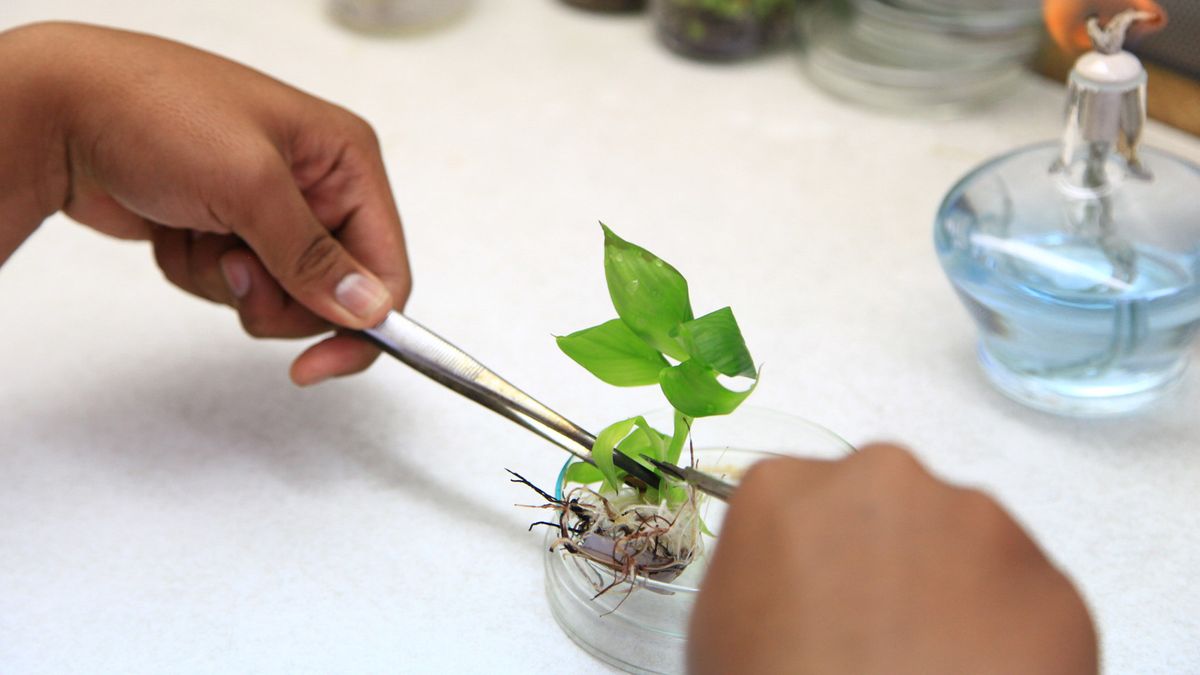Scientists have despatched a batch of seeds towards the Worldwide House Station to assist create new strains of agricultural vegetation proof against local weather change.
Seeds of the nutritious grain sorghum along with arabidopsis, a plant generally used for genetic experiments, are on their technique to the orbital outpost aboard the uncrewed Cygnus cargo automobile, which lifted off from NASA’s Wallops Flight Facility in Virginia on Monday (Nov. 7). The Cygnus will arrive on the orbiting lab on Wednesday (Nov. 9), supplied it is in a position to overcome the glitch that has prevented the freighter from deploying one in all its two solar arrays.
For a interval of three months, the seeds might be uncovered to microgravity, cosmic radiation and really low temperatures outdoors the International Space Station. The aim of the experiment is to induce genetic mutations that would make the vegetation extra resilient to local weather fluctuations ensuing from climate change, the Worldwide Atomic Vitality Company (IAEA), which along with the United Nations’ Meals and Agriculture Group oversees the experiment, mentioned in a statemen (opens in new tab)t.
Associated: Nanoracks’ spinoff aims to bring food production to Earth’s deserts and orbital space
This method of making new breeds of agricultural vegetation by way of off-Earth experiments is named space mutagenesis and has largely been utilized in China. The space station experiment is the primary of its variety for IAEA, which has for a lot of a long time been creating an identical approach, generally known as nuclear mutagenesis that makes use of quick bursts of high-energy radiation in ground-based labs to induce comparable modifications in DNA.
“I’m hopeful this experiment will result in breakthroughs: outcomes that we share freely with scientists and new crops that assist farmers adapt to local weather change and increase meals provides,” IAEA Director Basic Rafael Mariano Grossi mentioned in an announcement.
After the seeds return to Earth, scientists will germinate them and develop them into seedlings, which might be screened for traits which may make them higher suited to take care of drought and warmth in comparison with the parental era. The most effective-performing seeds will then be put by way of a number of rounds of breeding to maximise fascinating options, together with the power to take care of climate-related challenges. IAEA and FAO plan to distribute the brand new crop varieties to farmers in creating nations who’re hit hardest by the unpredictable climate fluctuations that local weather change causes and intensifies.
“Thousands and thousands of weak smallholder meals producers throughout the planet urgently require resilient, high-quality seeds tailored to more and more difficult rising circumstances,” FAO Director-Basic Qu Dongyu mentioned within the assertion. “Revolutionary science like space breeding of improved crop varieties will help pave the highway to a brighter future of higher manufacturing, higher diet, a greater atmosphere, and a greater life.”
In keeping with the Particular Report on Local weather Change and Land by the Intergovernmental Panel on Local weather Change, the steadiness of the world’s meals provide will lower sooner or later. Folks in areas already affected by poverty and overpopulation would be the most affected, the report mentioned. IAEA and FAO hope that the brand new space-bred varieties might be a part of the answer “to maintain manufacturing and meals high quality” sooner or later, the businesses mentioned within the assertion.
FAO and IAEA have beforehand developed over 3,400 crop varieties utilizing nuclear mutagenesis, which are actually being utilized by farmers throughout 70 nations. The researchers additionally need to examine the variations between the space-flown seeds and people irradiated by the stronger however shorter bursts of high-energy rays in ground-based labs.
The launch came about only one day after the start of the 2022 United Nations Local weather Change Convention, additionally referred to as COP27, which is at present being held in Sharm El Sheikh in Egypt.
Comply with Tereza Pultarova on Twitter @TerezaPultarova. Comply with us on Twitter @Spacedotcom and on Facebook.

